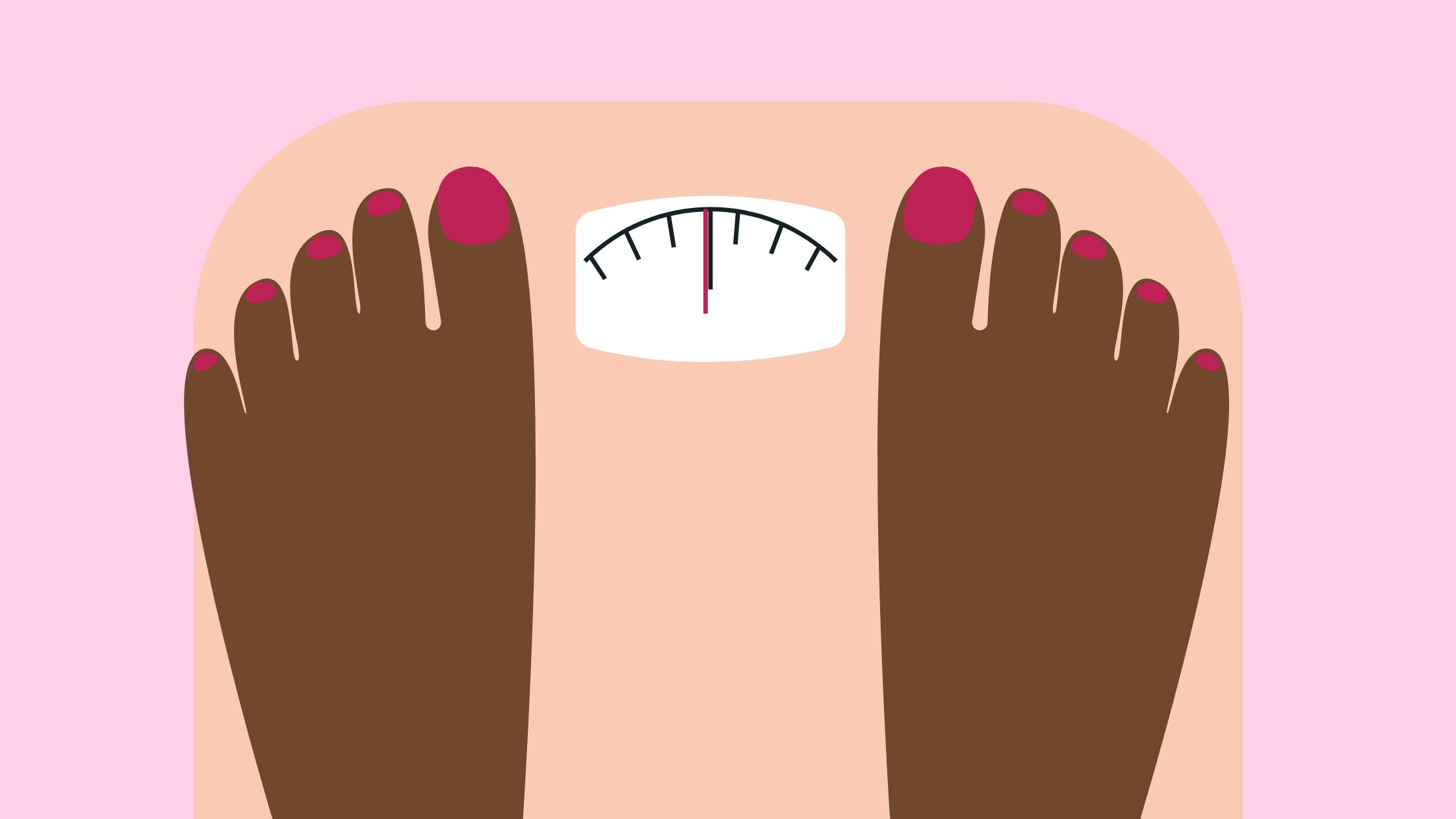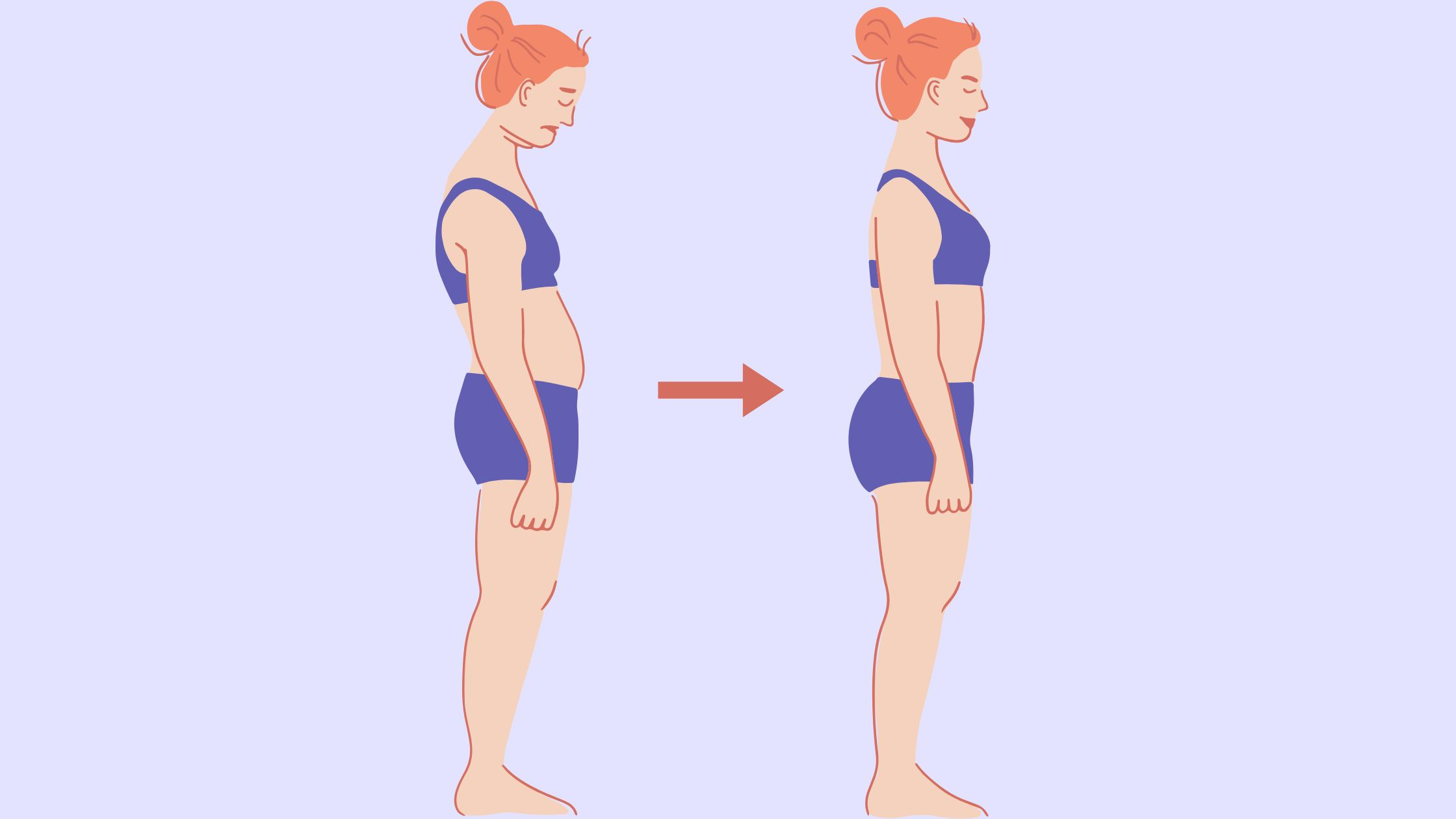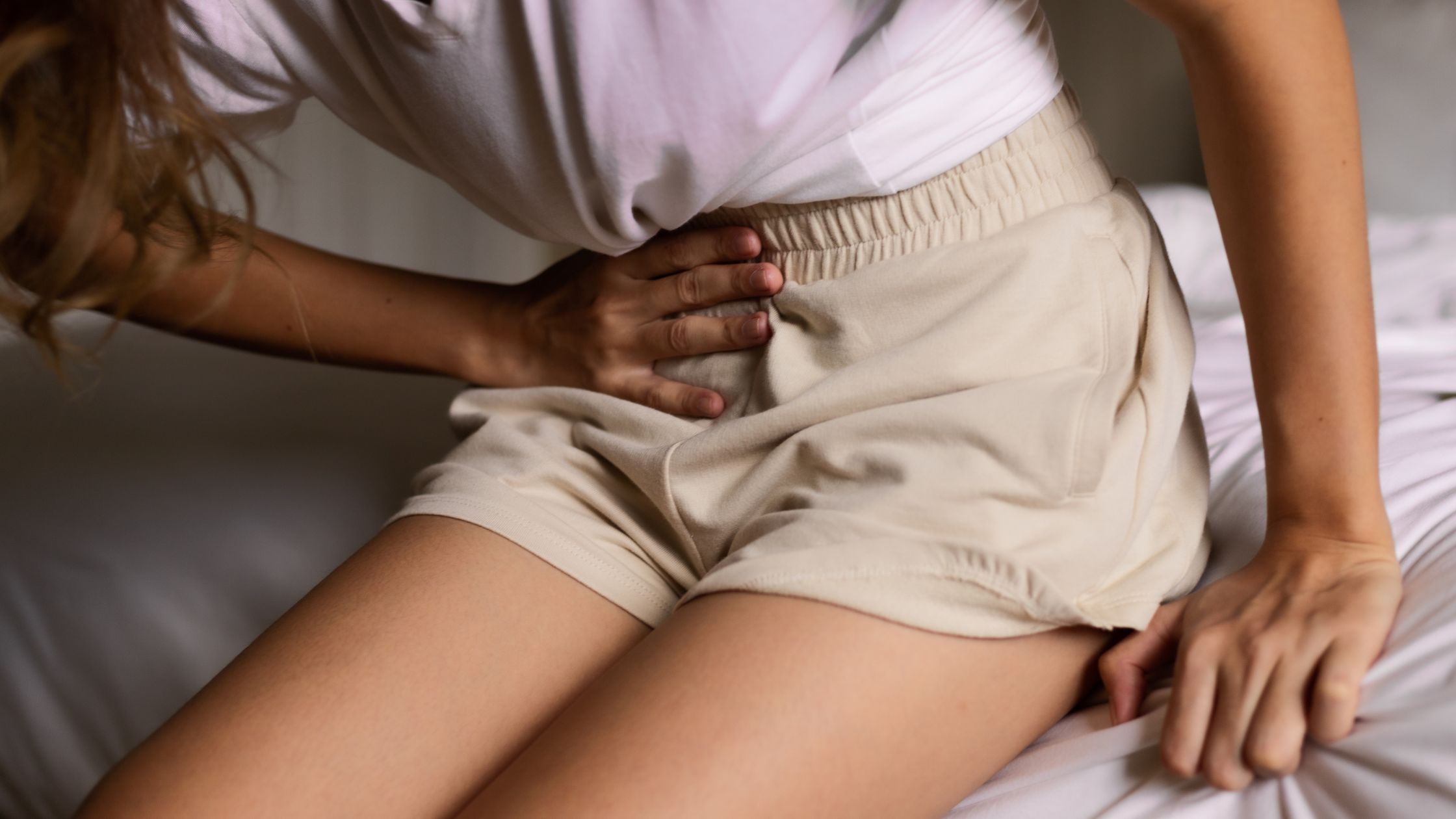When it’s time for ovulation, a woman’s body can go through some pretty amazing stuff. You might notice your senses are sharper, you’ve got more energy, your sex drive is revved up, and you just feel fantastic.
But, hang on a sec, ovulation can bring some not-so-great things along for the ride. Think of an uncomfortable bloated feeling, tender breasts, and sharp pain on one side of your tummy.
Do you feeling uncomfortable, bloated, gassy, or full at the same time every month? Well, it might just be a sign that you’re ovulating.
So, what exactly is ovulation? Well, it’s when a fully grown egg exits from the ovaries. It then takes a little journey down the fallopian tubes, where it patiently waits to be fertilized by sperm. Ovulation occurs somewhere between days 11 and 21 of the menstrual cycle. It is during this time ovulation bloating happens.
And guess what? It’s completely normal to get bloated during ovulation.
But here’s the good news, bloating during ovulation can be a sign that your hormones are doing their job.
So, let’s get down to the nitty-gritty of why bloating during ovulation occurs, what causes it, and how you can find some relief.
Does Ovulation Cause Bloating?
Yes, ovulation can cause bloating. According to the American Pregnancy Association, bloating during ovulation is a common symptom of the ovulation process.
During ovulation, there is a surge in estrogen and luteinizing hormone (LH) levels. These hormonal changes trigger water retention (edema), swelling, and complications in the gastrointestinal tract leading to a bloated feeling.
It’s different for every woman; bloating can vary from mild to severe. Generally, it’s a temporary condition that subsides as hormone levels normalize post-ovulation.
If the condition sticks around for longer, or you suspect something else might be happening, then it’s probably a good idea to consult a doctor. Bloating could also indicate conditions like endometriosis, ovarian cyst, or polycystic ovarian syndrome (PCOS).
Is Bloating During Ovulation Normal?
Feeling bloated during ovulation and right before your period begins is normal.
Bloating refers to the sensation of increased pressure in the abdomen, even though there might not be any actual enlargement of the abdominal region.
A study found that the highest level of water retention was on the first day of the menstrual cycle, while it was the lowest during the middle of the follicular phase.
While most people think of bloating as a premenstrual thing, it’s not uncommon for some women to feel bloated around ovulation or two weeks before their period starts.
How Long Does Ovulation Bloating Last?
Ovulation bloating generally lasts for just a few days and usually starts to go down after ovulation ends.
However, the exact duration can vary. Some women experience bloating for longer, especially if they have underlying health conditions such as polycystic ovary syndrome (PCOS), endometriosis, or ovarian cysts.
If bloating during ovulation persists for an unusually long period, it’s recommended to consult with your doctor.
Which Hormone Can Cause Bloating During Ovulation?
During ovulation, estrogen and luteinizing hormone (LH) hormones surge to high levels. Higher estrogen levels before ovulation can cause severe bloating in some women.
LH produced in the second half of the menstrual cycle helps produce another hormone, progesterone. Progesterone relaxes muscle tissues, including those in the gastrointestinal tract, leading to slower digestion and increased bloating.
Do You Gain Weight When Ovulating?

It is common for some women to experience temporary weight gain during ovulation.
The weight gain usually goes away at the end of the menstrual cycle once progesterone levels return to their normal state.
Besides hormonal factors, weight gain during ovulation can also be attributed to changes in insulin levels, increased appetite, food cravings, and lifestyle elements. Other factors like medications and underlying diseases could also play a role.
Does Bloating During Ovulation Mean Pregnancy?
Experiencing bloating during ovulation doesn’t automatically imply pregnancy. This is because bloating is also a common symptom that occurs during the ovulation process itself. The release of an egg from the ovaries can lead to a small amount of fluid being released into the digestive tract, which can cause discomfort and bloating.
However, bloating is also one of the early signs of pregnancy. If you’re trying to get pregnant and notice bloating accompanied by other initial pregnancy symptoms such as increased urination, sensitive breasts, or fatigue, you could potentially be pregnant.
While bloating can occur both during ovulation and early pregnancy, it’s crucial to note that many pregnancy symptoms are not exclusive to pregnancy, meaning that experiencing these symptoms might not necessarily indicate that one is pregnant.
Comparing Ovulation Bloating to Other Types of Bloating

Bloating is a common symptom in many phases of a woman’s life, and understanding the differences can be quite helpful.
Ovulation Bloating vs. Premenstrual Bloating
Premenstrual syndrome, or PMS, typically occurs one to two weeks after ovulation and often includes bloating as one of its symptoms. Premenstrual bloating is usually more severe than bloating during ovulation and can be accompanied by emotional changes like irritability or depression.
Ovulation Bloating vs. Menopause Bloating
Menopause, specifically the perimenopausal phase leading up to menopause, can cause bloating. This is due to hormonal fluctuations, particularly estrogen. Menopause bloating tends to be more frequent than ovulation bloating and is often accompanied by other symptoms like hot flashes, insomnia, and vaginal dryness.
Ovulation Bloating vs. Pregnancy Bloating
Pregnancy bloating typically happens in early pregnancy due to increased progesterone levels. While you may experience bloating during pregnancy, the more obvious signs and symptoms of pregnancy include nausea, missed periods, swollen breasts, food aversions, and frequent urination.
Bloating is considered a secondary and less obvious symptom of pregnancy, along with cramping, mood swings, constipation, and light spotting.
Causes of Ovulation Bloating

Below are the most common causes of ovulation bloating:
1. Hormones
Bloating during ovulation is generally caused by changes in hormone levels, particularly the surge in estrogen and LH that happens just before ovulation begins.
Hormonal Shifts
In the middle of your menstrual cycle, your body prepares to release a mature egg from the ovaries. Just before this happens, levels of estrogen and LH in your body increase significantly. Estrogen and LH are sex hormones that, among other roles, help regulate the balance of fluids in your body.
Edema and Swelling
Hormonal shifts can also cause your body to retain more water and sodium, leading to swelling. This is not to be confused with bloating, which refers to a feeling of increased pressure in the abdomen without an actual increase in size. However, both conditions can make you feel “puffy.”
Gastrointestinal Complications
Moreover, the surge in estrogen and LH can also lead to complications in your gastrointestinal tract, resulting in bloating during ovulation. For most, this bloating resolves within a few hours to a few days.
Bloating during ovulation might also be accompanied by mild weight gain. Sometimes, this fluid accumulation might be noticeable around the time of ovulation and not just during it.
2. Increased Digestive Issues
Some women may experience digestive issues such as constipation or diarrhea during ovulation due to the changing hormone levels. These digestive problems can lead to a bloated feeling.
3. Dehydration
Dehydration is when the body lacks enough water to function properly.
When the body doesn’t have enough water, it tries to conserve water by retaining it. This can lead to fluid retention in various body parts, including the abdominal area.
During the menstrual cycle, hormonal changes occur in a woman’s body, including releasing aldosterone. Aldosterone plays a role in regulating the balance of fluids and electrolytes in the body. Dehydration can cause an increase in aldosterone levels, which may lead to severe bloating.
4. Dietary Factors and Food Cravings
High-sodium and high-carb diets significantly impact excess fluid buildup. Salty foods can increase thirst and cause the body to retain extra fluid, leading to weight gain. Certain foods and beverages, like beans, lentils, and carbonated drinks, can also cause bloating.
5. Underlying Conditions
It is also common for some women to experience severe bloating during the menstrual cycle if they have certain underlying conditions like polycystic ovarian syndrome (PCOS), endometriosis, or fibroids.
Symptoms and Signs of Ovulation Bloating
Signs of ovulation bloating include:
Abdominal Bloating: Ovulation bloating may present as a feeling of fullness or increased abdominal pressure, causing discomfort and stomach pain.
Temporary Weight Gain: Due to water retention during ovulation, women may experience a slight, temporary increase in weight.
Digestive Discomfort and Gas: Hormonal changes during ovulation can cause digestive issues, including discomfort and gas, adding to the bloated feeling.
Impact on Mood and Energy Levels: The hormonal shifts associated with ovulation can affect mood and energy levels, potentially leading to feelings of fatigue or mood swings.
Besides experiencing ovulation bloating, women may also experience the following symptoms during ovulation:
- Changes in vaginal discharge
- Changes in your basal body temperature (BBT)
- Changes in the position of the cervix
- Light spotting
- Breast tenderness
- Slight cramping or one-sided abdominal pain called Mittelschmerz pain
- Heightened sense of taste, vision, or smell
- Increased libido
Tips For Managing Bloating During Ovulation

Experiencing bloating can be both uncomfortable and disruptive to day-to-day activities. But managing bloating doesn’t have to be challenging! If you are seeking relief from bloating around ovulation, think about implementing these strategies.
Healthy Eating Habits
Consider adopting a diet low in FODMAPs, which stands for Fermentable Oligo-, Di-, Mono-saccharides, And Polyols. These are certain types of carbohydrates that are difficult to digest and may trigger symptoms like bloating, gut discomfort, and gas. Steering clear of high FODMAP foods — wheat, onions, broccoli, garlic, cauliflower, cabbage, artichokes, apples, beans, watermelon, and pears — could potentially ward off ovulation-related bloating.
Reduce Sodium Intake
Sodium can contribute to water retention in your body. Limiting the intake of salty foods, such as processed and junk foods, can help ease bloating.
Hydrate
Despite what you might think, drinking plenty of water can reduce bloating. When your body is adequately hydrated, it’s less likely to retain excess water.
Regular Exercise
Physical activity can help stimulate the muscles in your gut, helping to prevent constipation and gas buildup, increase blood flow and relieve water retention.
Limit Alcohol and Caffeine
Both alcohol and caffeine can lead to dehydration, which can, in turn, cause your body to retain more water and cause bloating.
Potassium
Insufficient potassium intake is a common cause of bloating. A staggering 98% of Americans reportedly fail to consume the recommended amount of potassium, leading to excessive salt and water retention in the body. Consuming potassium-rich foods such as bananas and potatoes can potentially alleviate these symptoms.
Magnesium
A sufficient magnesium intake through diet or supplements can help reduce water retention and bloating. Dietary sources of magnesium include fish, almonds, and avocados. However, it’s important to maintain a balance, as excessive magnesium supplement intake may result in gastrointestinal discomfort or diarrhea.
Use Over-the-Counter Remedies
Some over-the-counter products can help reduce gas and bloating. These might include simethicone, which helps break down gas bubbles, and probiotics, supporting a balance of healthy gut bacteria.
Try Natural Diuretics
Some foods and herbs can help your body get rid of excess water. These include celery, onions, eggplant, asparagus, ginger, cucumbers, pineapple, and herbal teas.
Stress Management
Elevated stress levels can intensify the production of stomach acid, leading to digestive issues. To mitigate this, it’s advised to incorporate relaxation techniques into your routine before your monthly cycle.
This could include participating in a yoga session, indulging in an aromatherapy bath, scheduling a massage, enrolling in an art class, or going for a jog.
Probiotics
Probiotics, also known as “good bacteria,” can significantly assist in easing bloating during ovulation.
Incorporating foods like yogurt, peppermint, and turmeric into your dietary regimen can help to restore the natural balance of bacteria in the gut.
By aiding in digestion and absorption of nutrients, probiotics can help minimize bloating and other gastrointestinal symptoms associated with ovulation.
Furthermore, they may also help maintain overall gut health, making the digestive system more resilient to hormonal fluctuations.
Takeaway
- Ovulation can result in bloating, tender breasts, and abdominal pain due to hormonal fluctuations.
- Ovulation bloating appears for a few days but can extend longer due to underlying health conditions.
- Temporary weight gain during ovulation is common due to fluid retention and bloating caused by hormonal changes.
- Bloating during ovulation is mainly due to hormonal changes; estrogen and LH surge before ovulation, causing water retention, swelling, and gastrointestinal complications. Mild weight gain, digestive issues, dehydration, dietary factors, food cravings, and underlying conditions such as PCOS, endometriosis, or fibroids can exacerbate bloating.
- Ovulation symptoms include abdominal fullness, temporary weight gain, digestive discomfort, and mood and energy fluctuations. Other symptoms include mild vaginal discharge, basal body temperature, cervix position, light spotting, breast tenderness, slight cramping, heightened senses, and increased libido.
- Management of severe ovulation bloating includes staying away from high FODMAP foods, limiting salt intake, staying hydrated, regular exercise, limiting alcohol and caffeine, increasing potassium and magnesium intake, using over-the-counter remedies, incorporating natural diuretics, managing stress, and consuming probiotics.
References:
White, C. P., Hitchcock, C. L., Vigna, Y. M., & Prior, J. C. (2011). Fluid Retention over the Menstrual Cycle: 1-Year Data from the Prospective Ovulation Cohort. Obstetrics and gynecology international, 2011, 138451. doi.org/10.1155/2011/138451Nose, Y., Fujita, K., Wada, T., Nishimura, K., & Hakoda, M. (2020). Effects of Menstrual Cycle Phase on Fluid Regulation during Walking Exercise. Journal of Sports Science & Medicine, 19(3), 556-563. ncbi.nlm.nih.gov/pmc/articles/PMC7429427/Stachenfeld N. S. (2008). Sex hormone effects on body fluid regulation. Exercise and sport Sciences reviews, 36(3), 152–159. https://doi.org/10.1097/JES.0b013e31817be928Mayo Clinic Staff. (2022, Dec 3). Water retention: Relieve this premenstrual symptom
https://www.mayoclinic.org/healthy-lifestyle/getting-pregnant/in-depth/symptoms-of-pregnancy/art-20043853Mayo Clinic Staff. (2023, May 25). Menopause: Symptoms
mayoclinic.org/diseases-conditions/menopause/basics/symptoms/con-20019726Mayo Clinic Staff. (2021, Dec 3). Symptoms of pregnancy: What happens first
https://www.mayoclinic.org/healthy-lifestyle/getting-pregnant/in-depth/symptoms-of-pregnancy/art-20043853Schoenfeld, L. (n.d.). Why Do I Get Digestive Issues During My Period and Ovulation? Laura Schoenfeld. Retrieved July 15, 2023, from https://lauraschoenfeldrd.com/digestive-issues-period-ovulation/Healthline. (n.d.). Potassium Deficiency: Symptoms and How to Prevent It. Healthline. Retrieved from https://www.healthline.com/nutrition/potassium-deficiency-symptomsHealthline. (n.d.). Magnesium for Weight Loss: Does It Help? Healthline. Retrieved from https://www.healthline.com/health/food-nutrition/magnesium-for-weight-loss#Does-magnesium-help-with-weight-loss?-
